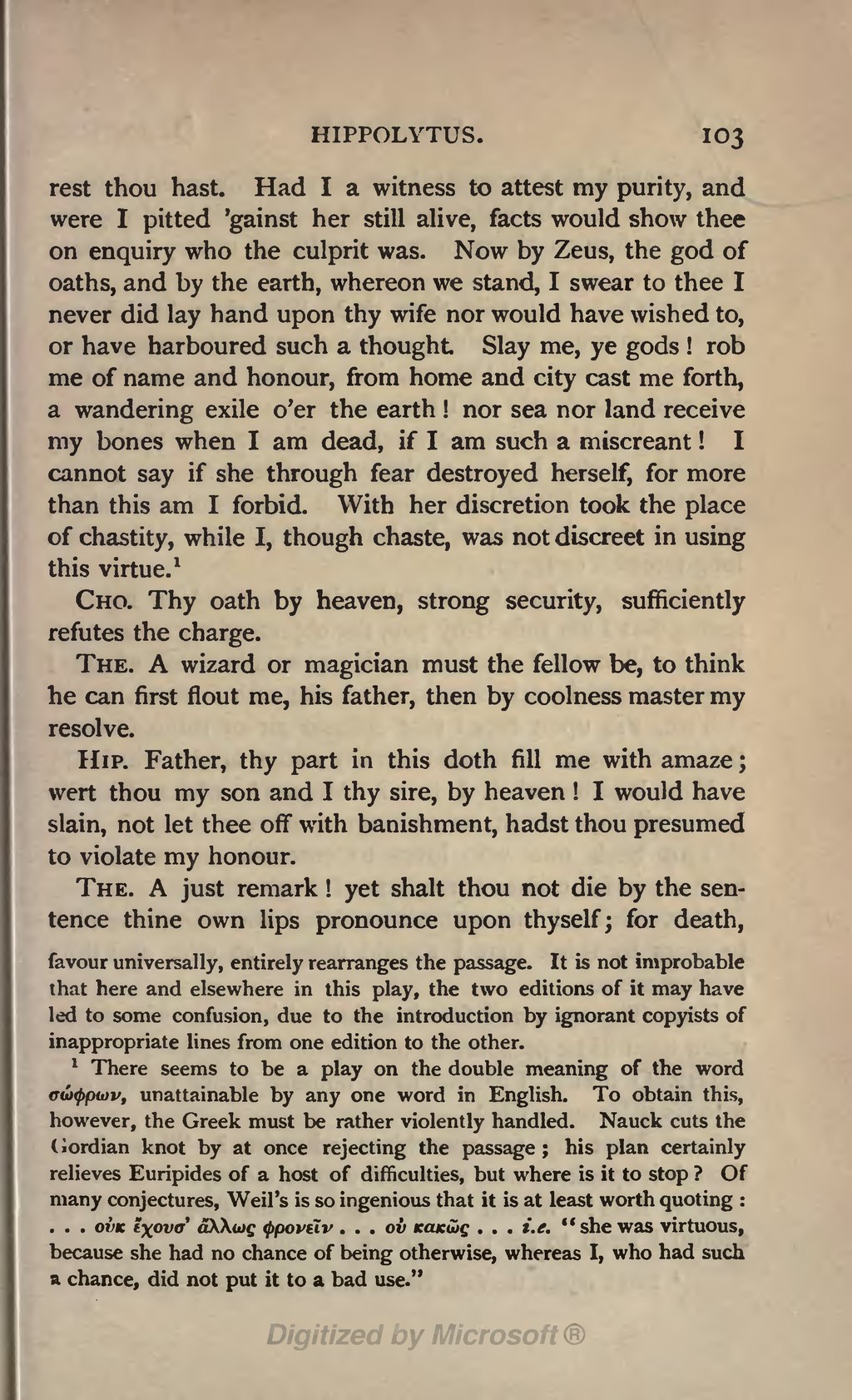rest thou hast. Had I a witness to attest my purity, and were I pitted 'gainst her still alive, facts would show thee on enquiry who the culprit was. Now by Zeus, the god of oaths, and by the earth, whereon we stand, I swear to thee I never did lay hand upon thy wife nor would have wished to, or have harboured such a thought. Slay me, ye gods! rob me of name and honour, from home and city cast me forth, a wandering exile o'er the earth! nor sea nor land receive my bones when I am dead, if I am such a miscreant! I cannot say if she through fear destroyed herself, for more than this am I forbid. With her discretion took the place of chastity, while I, though chaste, was not discreet in using this virtue.[1]
Cho. Thy oath by heaven, strong security, sufficiently refutes the charge.
The. A wizard or magician must the fellow be, to think he can first flout me, his father, then by coolness master my resolve.
Hip. Father, thy part in this doth fill me with amaze; wert thou my son and I thy sire, by heaven! I would have slain, not let thee off with banishment, hadst thou presumed to violate my honour.
The. A just remark! yet shalt thou not die by the sentence thine own lips pronounce upon thyself; for death,
- ↑ There seems to be a play on the double meaning of the word σώφρων, unattainable by any one word in English. To obtain this, however, the Greek must be rather violently handled. Nauck cuts the Gordian knot by at once rejecting the passage; his plan certainly relieves Euripides of a host of difficulties, but where is it to stop? Of many conjectures, Weil’s is so ingenious that it is at least worth quoting: . . . ούκ ἔχουσ᾽ ἄλλως φρονεῖν . . . οὐ κακῶς . . . i.e. "she was virtuous, because she had no chance of being otherwise, whereas I, who had such a chance, did not put it to a bad use."
favour universally, entirely rearranges the passage. It is not improbable that here and elsewhere in this play, the two editions of it may have led to some confusion, due to the introduction by ignorant copyists of inappropriate lines from one edition to the other.
